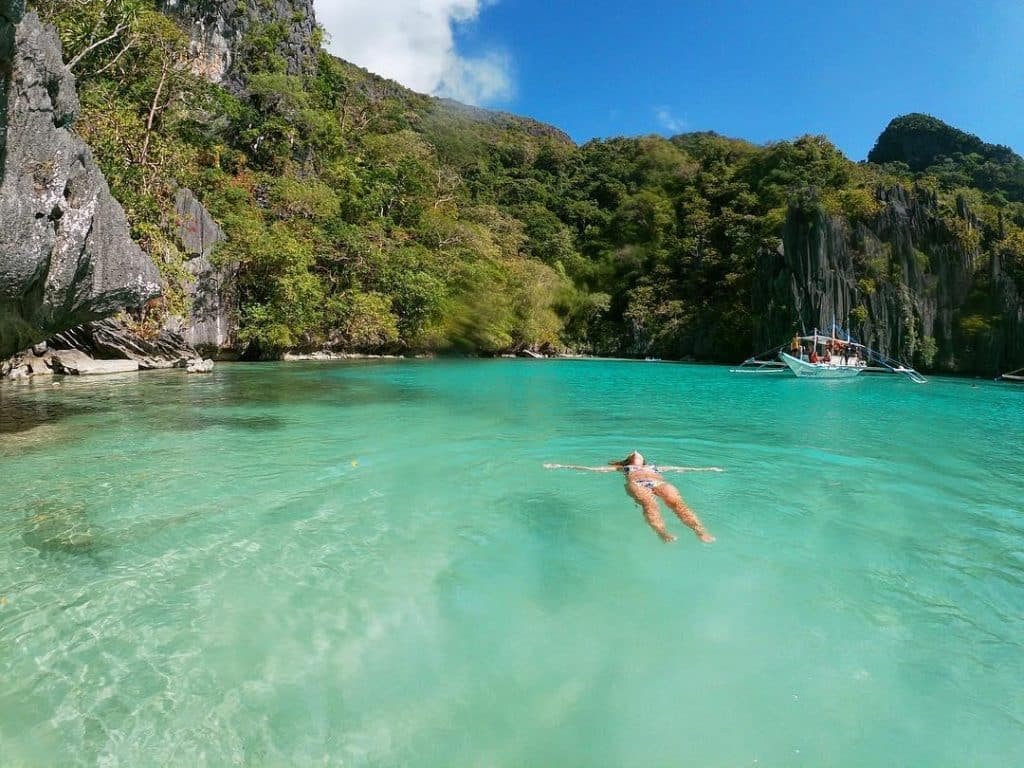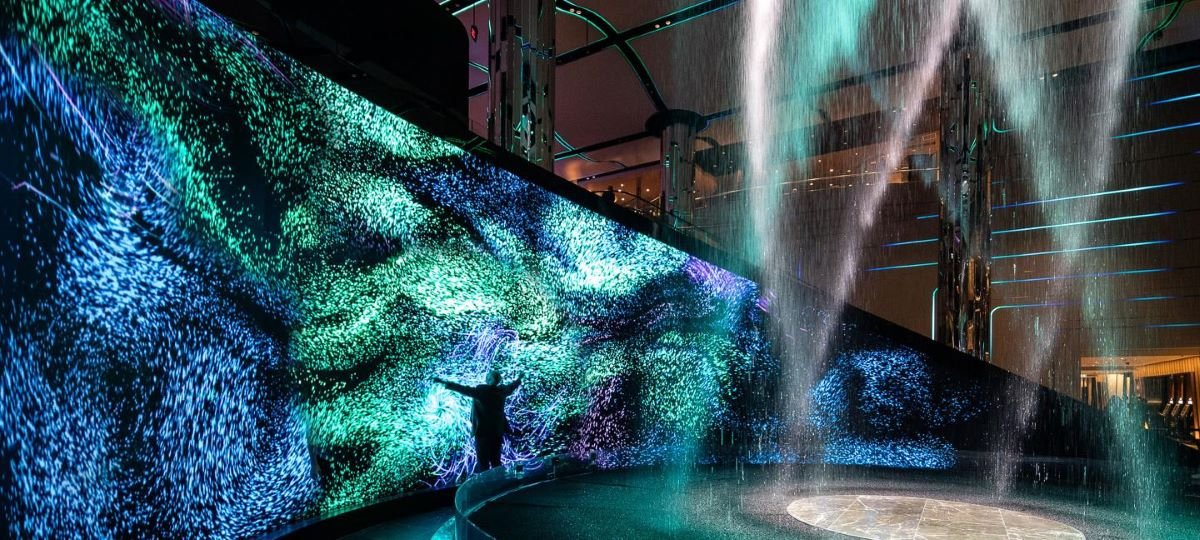POSITIVELY ITCHING FOR A BREAK, you’ve decided to run the new-normal gauntlet of international travel, with deserted beaches, unsurfed waves and sunrise-volcano hikes firmly fixed in your mind’s eye. You’re absolutely in need of a tropical island dripping in fresh fruits, festooned with exotic animals, surrounded by big, barreling waves, and with local warungs serving up tasty nasi goreng and fresh-cracked coconuts. Just take my money. Get me there. Here. Where I’m sat right now writing to you. Bali is the place you need. A welcome dose of quarantine medicine served by some of the most hospitable, peaceful people on Earth. Sounds good?

As lockdown begins to ease and those of us here wander up and down lonely beaches passing empty hotels, the question on everyone’s minds is: What does the future of tourism in Bali look like?
Pre-pandemic, the local tourism industry was pushing hard for changes, spurred on by demand for plastic-free, sustainable, organic products and services following on from 2018’s announcement of an island-wide ban on single-use plastics. We saw resorts, retreats, restaurants and tours respond positively, with everything from sustainable diving and organic veggie patches to carbon offsets and energy-efficient design. It’s a trend we will hopefully see grow into an island-wide tourism culture, as more socially and environmentally aware travelers seek out resorts that commit to an “eco” ethos. Time will tell.
So after you have booked your socially distanced plane seats for a long-awaited Bali escape (or return), find the perfect eco-stay to help keep the island clean and green.
Come September, pandemic willing, Bali will reopen to international arrivals. While operators await official advice, recharge their temperature guns and refill their hand sanitizers, here’s a little of what you have to look forward to.
CENINGAN RESORT + DIVERS

On Nusa Ceningan, a tiny slice of an island sandwiched between Nusa Lembongan and Nusa Penida, the only dive resort is also one of the world’s most sustainable. Ranked No. 1 in Indonesia and No. 4 globally by Green Fins, Ceningan Divers with their Ceningan Resort leads the way for local eco-tourism. This environmentally sustainable operation was an early adopter of the zero-plastic policy implemented across Bali in 2018. Eco-measures they employ include a ban of non-reef-safe sunscreen; on-site mangrove propagation; a quarterly carbon offset credit donation to the World Wildlife Fund; reef monitoring and more. The resort also supports conservation programs like Trash Hero and Project Aware’s Dive Against Debris.

Co-owner Dave Mcclinton has reassuring words for the future of their little island home. “There have been great strides in the movement for sustainability, and post-COVID-19 there is a real concern we will move backwards to a more disposable society,” he says. “This is something that Ceningan Divers won’t let happen.” ceninganresort.com; doubles from Rp700,000.
BAMBU INDAH

One of the world’s “greenest” resort experiences can be found clinging to the edge of a ravine in Sayan, Ubud, at the sprawling eco-luxury resort Bambu Indah, from John and Cynthia Hardy, founders of the nearby Green School (“the greenest school on Earth”). Since opening in 2005, the resort has been a model for sustainable tourism, with bespoke bamboo villas filled with handmade organic shampoos, conditioners and soaps, and a ban on palm-oil products—“the death of the planet” as John puts it. Without guests to feed, they’ve opened their permaculture veggie garden to the local community.
“In a world of marketers and green-washing, we are really simple and clear,” he tells me. “We do things that make a difference and that are real. Our focus has been on creating the resort as a place where people leave having learned about the possibilities for their own lives.” bambuindah.com; doubles from Rp2,200,000.
AWANG AWANG

Escape to a jungle hideout in your own thatched-bamboo cocoon-shaped house at Villa Awang Awang on the banks of the Petanu River. Two of the resort’s five villas are built from reclaimed and restored old teak joglo—traditional Javanese houses. The eco-friendly Villa Pererepan is sustainably built from bamboo and natural materials and based on the Fibonacci sequence.
Awang Awang recycles all waste, with food scraps composted or fed to village animals, and BioCycle septic systems used to treat wastewater for use in the gardens. There are also eco-towel and sheet programs, plus all-natural organic soaps, refillable containers, a zero–plastic straw policy, and a ban on pest spraying and toxic mosquito fogging (geckoes take care of those the natural way). The resort also provides financial support to neighboring Melayang village. awangawang.com; villas from Rp2,700,000.
FLOATING LEAF
Photos courtesy of Bali Floating Leaf.

If a yoga retreat sounds like the ideal detox post-lockdown, then Floating Leaf is one of the highest recommended. The 12-room eco-luxury resort is located on the borders of a lush jungle overlooking the bay of Pantai Purnama, or “Full Moon Beach.” Set atop a hill in peaceful Sukawati village in “old Bali,” it enjoys its own microclimate with a near-constant breeze that keeps the
temperatures and mosquito population down. During lockdown, staff stayed busy making more than 600 masks and other personal protective gear, which they distributed to the local banjar free of charge.

The retreat’s green initiatives include a permaculture garden, eco-materials like compressed bamboo, and architecture that features passive cooling—as opposed to air-conditioning, which is reserved for bedrooms only. “Our mission is to demonstrate to our guests the power of sustainable lifestyles, and that you don’t need to sacrifice comfort and luxury for energy,” co-founder Mikaku Doliveck says.

Floating Leaf’s reemergence offerings include the services of an onsite mental-health practitioner. “Mental health has been a huge factor during this pandemic,” Doliveck says. Mental- health guidance is offered in packages along with yoga, meditation, breath work and cooking classes. balifloatingleaf.com; packages from Rp825,000.
BALI ECO STAY
Photos courtesy of Bali Eco Stay.



This luxury resort is centrally located, with spectacular views from its position on the southern slopes of Mount Batukaru, Bali’s second-highest mountain. Though the resort has been closed since lockdown began in March—with an opening date set for August—founder John Blundstone is optimistic. “We have been lucky,” he says. “After Mount Agung erupted two years ago and the airport closed for two days, business dropped on the island dramatically, so I started saving for hard times.” Lockdown here has been a time for refurbishment, with renovations to the restaurant and its largest villa. Across the resort you’ll find many sustainable solutions, including a permaculture farm and a ban on single-use plastics and dangerous chemicals. When they’re back in action, Blundstone says the resort will concentrate on long stays, “especially wellness retreats, as we feel that’s where Bali’s future lies.” baliecostay.com; doubles from Rp1,740,000.
FIVELEMENTS RETREAT

Fivelements Retreat, located in Mambal, just outside of Ubud, is a multi-award-winning eco-wellness resort. Since opening in 2010, the property has established itself as a leader in residential wellness packages, epicurean plant-based cuisine, transformative sacred-arts programs and wellness hospitality. To cater to post-pandemic travel, the resort will offer a range of tailor-made packages, alongside spacious new pool suites, for those seeking pampered self-isolation. fivelements.org; doubles from Rp3,200,000.

